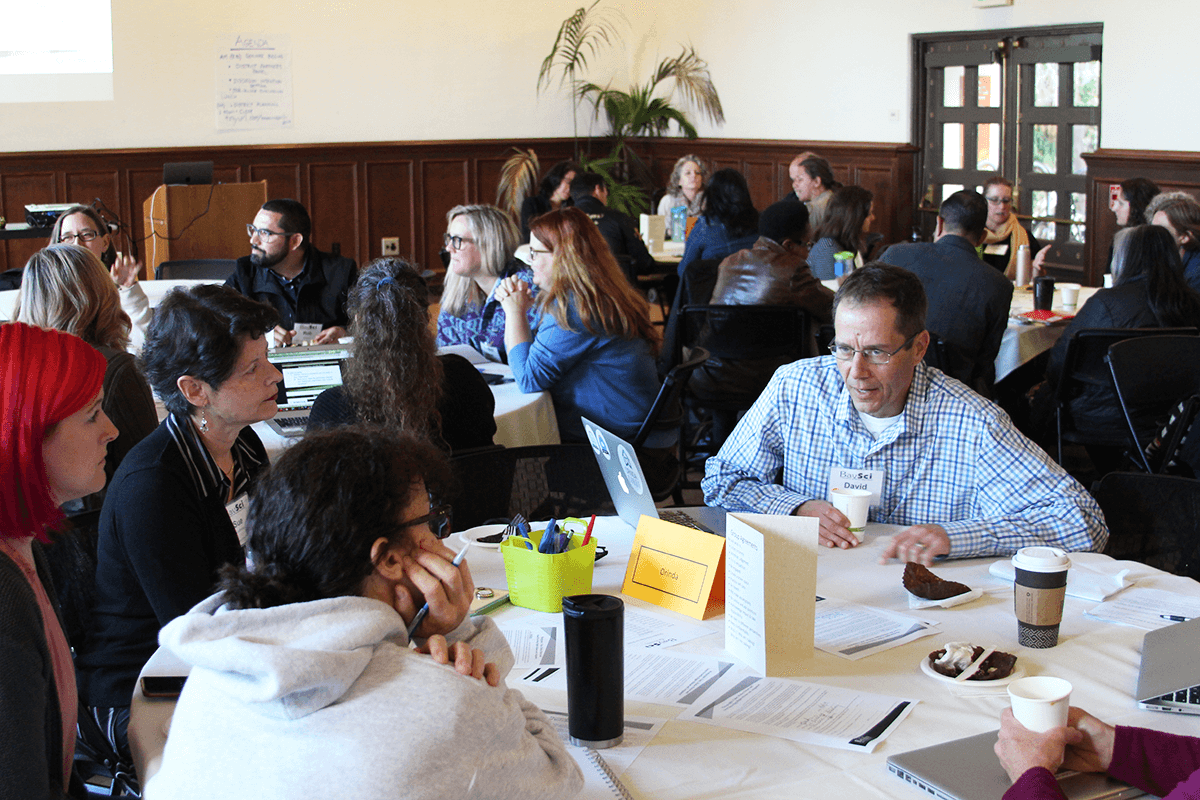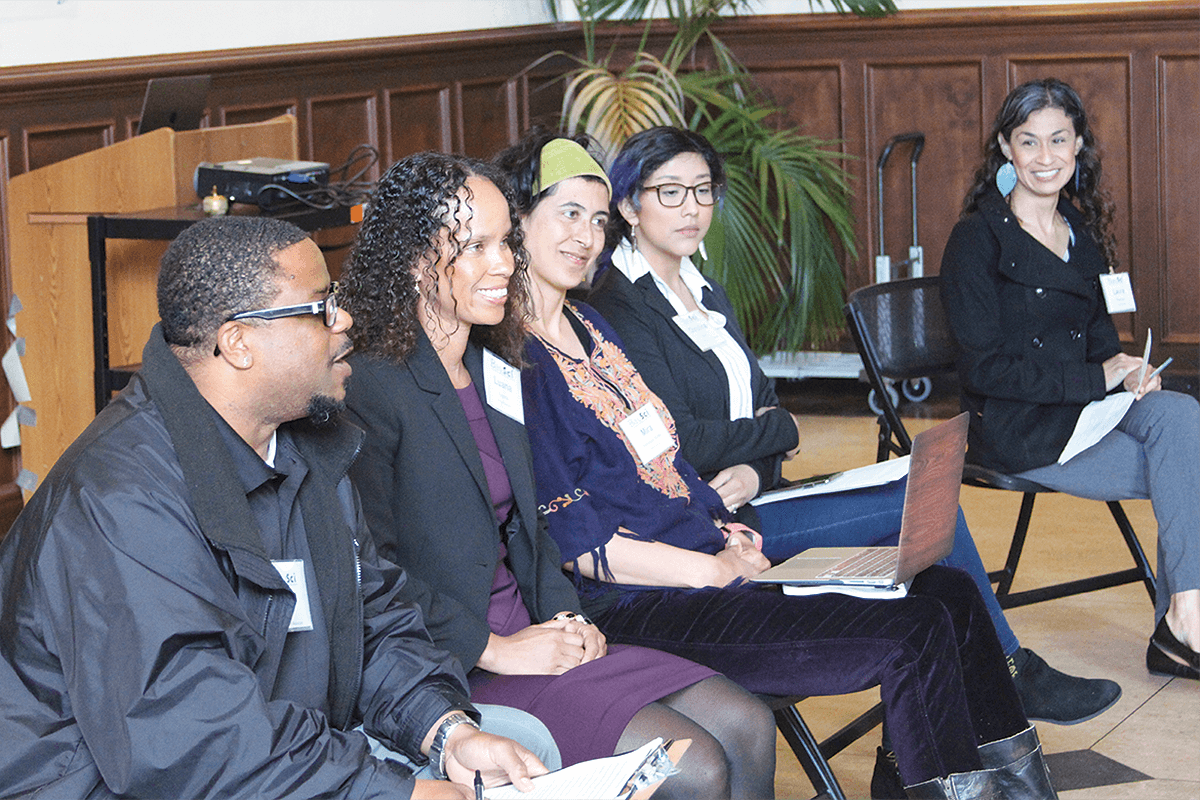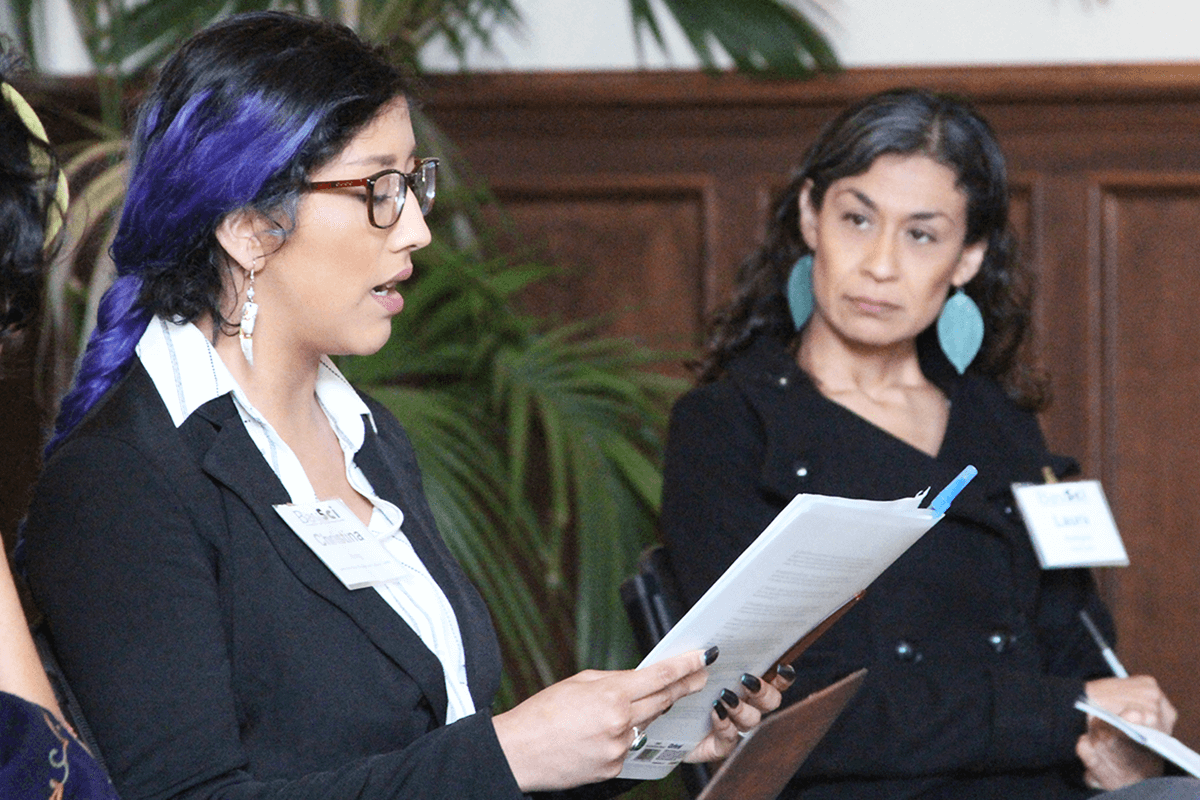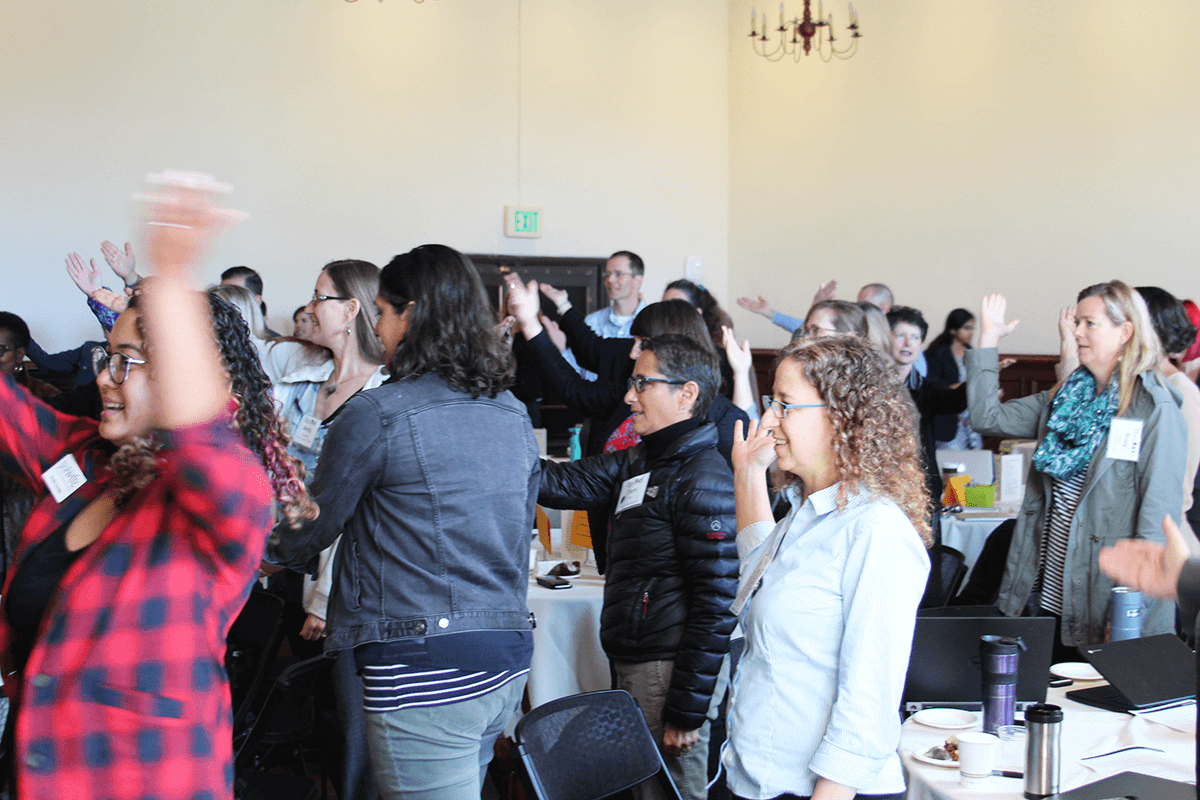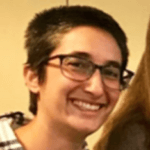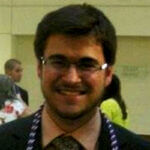What does environmental education look like?
Picture it in your mind: You’re likely imagining school children trekking through the woods en route to a team-building exercise, stopping to do leaf rubbings and other nature observations along the way. While this may be the traditional notion of environmental education, it is not representative of the opportunities and experiences available. BaySci, a program of the Lawrence Hall of Science at the University of California, Berkeley, and Youth Outside, an organization in Oakland, CA, are advocating, with support from the California Environmental Literacy Initiative (CAELI), for a new vision for environmental literacy that incorporates more voices and perspectives. Specifically, CAELI is supporting collaboration between the Hall and Youth Outside to ensure that equity and cultural relevance are embedded in all aspects of BaySci’s school district capacity-building work. Together we are facilitating deepening partnerships between community-based organizations and districts developing comprehensive environmental literacy plans.
On April 16, 2019, school districts focused on the ongoing development and refinement of Next Generation Science Standards (NGSS) implementation plans came together with districts focused on developing environmental literacy plans as part of BaySci’s district capacity-building program. The day was collaboratively planned by the Lawrence Hall of Science’s BaySci team and Youth Outside. Sixty superintendents, assistant superintendents, curriculum and instruction directors, science coordinators, principals, and teacher leaders participated in the daylong event. The goal was to collaboratively think about how developing environmental literacy in all students can help lead to more equitable, inclusive, and culturally relevant learning experiences, as well as help districts achieve goals related to science and other academic subjects, social-emotional learning, English language development, and critical-thinking goals. The convening was attended by leadership teams (in most cases, including the superintendent) from each district, along with environment-focused community partners.
BaySci collaborates with partner school districts throughout California to systematically enhance the quality and quantity of K–12 science teaching and learning. BaySci supports the improvement of science education by assisting districts with the transition to and implementation of NGSS. NGSS not only embodies a new vision of teaching and learning, it also emphasizes the importance of environmental literacy across life, physical, earth, and space science at all grade levels. Districts on the forefront of this work are infusing environmental literacy in their NGSS implementation plans, while others are developing districtwide environmental literacy plans and using them as a bridge to more fully implement NGSS. Whether science or environmental literacy is in the foreground, the other is never too far in the background. Youth Outside has supported BaySci to frame and craft a vision for district-wide environmental learning, rooted in equity, inclusion, and cultural relevance.
At the beginning of the April event, BaySci and Youth Outside demonstrated how community partners offer districts:
- expertise to effectively and systematically use the outdoors as a classroom from Grades TK–12, which is not something we expect schools and teachers to be able to do, nor is it included in teaching or administrative credential programs;
- local connections to increase the opportunity for learning experiences that include and address local assets, priorities, and address environmental and social injustices; and
- access to new funders interested in supporting systemic work across districts and large-scale partnerships.
BaySci and Youth Outside shared with participants that we need to make sure that environmental education goes beyond giving kids the impression there is one “right” way to engage with nature or be sustainable, talking about the importance of eradicating invasive species, or prioritizing wildlife over human communities. Environmental education can’t only mean spending time in wild and hard-to-access places, or be relegated to something relevant primarily to middle and upper class white communities.
Environmental education must also include dialogue, where we learn with and from our students; it must include shining a light on environmental injustices that disproportionately affect low-income communities and communities of color. We need to expect that learning about the natural world and our place within it can happen in urban, rural, suburban, remote, or bustling locations. We also need to broaden our definition of what people do in nature from hiking, recreation, and camping to include barbequing, working, gardening, and breathing. And we need to share stories of the ongoing and age-old work people of color across the globe have done to protect their ecosystems.
The highlight and focal point of the convening was interacting with a panel of four individuals working at a diverse array of environmental organizations that stress community and inclusivity. The panel, moderated by Laura Rodriguez of Youth Outside, was an excellent opportunity to learn from experts in the field.
Panelist Luana España of the Port of Oakland described the Port itself as a classroom where students learn about local wetlands and the impact of economic activity on the environment. In addition to field trip experiences, the Port of Oakland led a community impact project with West Oakland Middle School in which students studied the water cycle and waste in their community. They then worked to develop and present ideas to address the issues they studied, including mapping trash with drones and using nets to collect waste. España said that the Port encourages students not only to enjoy the environment, but also to take advantage of opportunities to make a positive impact in their community by improving the environment.
Panelist Christina Ingong works at the California Indian Museum and Cultural Center in Santa Rosa, California, where environmental education programs incorporate the ecological history, technology, and knowledge of indigenous people. The museum is combating the misconception that native people were primitive by linking tribal knowledge to STEM learning concepts through maker stations and in-depth study of historical practices like controlled burns. Students that visit the museum learn about the environment and make meaningful connections to native history, culture, and community in an atmosphere of mutual respect and understanding.
Panelist Mira Manickam-Shirley, co-founder and executive director of Brown Girl Surf in Oakland led attendees in her organization’s “Womanifesto” song:
We play, we are community,
We are girls with the power to be who we wanna be,
RESPECT and love to the land and sea,
We keep it fresh and express—with gratitude and peace.
Brown Girl Surf embodies these values by providing an opportunity for girls of color to learn to surf, and explore and express themselves in nature. Manickam-Shirley sees her organization as the beginning of a movement to build a community around surfing, female empowerment, and caring for the ocean.
Panelist Vencel Alfred, of YES Nature to Neighborhoods, stressed that hands-on experiences in nature activate students’ senses and engage their natural curiosity. YES is an organization in Richmond that supports young people of color to have a sense of belonging in outdoor environments. YES believes strongly that outdoor learning is vital, and cannot be replicated in a classroom. YES seeks to overcome the financial, cultural, and educational barriers that prevent children and families from exploring nature by providing varied nature experiences in Richmond and beyond.
After the panel discussion, district leaders met with panelists and other representatives from partner organizations like East Bay Regional Park District, California Academy of Science, Monterey Bay Aquarium, and many more. Together they discussed opportunities for bringing extraordinary environmental experiences to students, developing connections and relationships that will help meet ambitious standards and goals set out in NGSS and environmental literacy plans.
After a workshop with Laura Rodriguez on setting intentions and using assets-based language, district leaders and partners engaged in conversations about whose voices are currently missing from their science and environmental literacy plans. They explored how community-based partners can provide culturally relevant learning experiences that ground academic learning in local phenomena, as well as how to identify community strengths and local context.
As participants eagerly engaged in conversations—and the room’s decibel level grew louder—the following quotes stood out in a conversation among several district superintendents:
Parents would support that I want to have these types of community partnerships around the environment and making our community healthier, but I just don’t know who all the potential partners are, outside of the traditional ones. This [the panel] helps me to think about who they might be and how to reach out to them. I hope my team can keep working on this, creating new partnerships, back in our district. Ultimately, we need to engage the public in order to get a parcel tax to do this work.
We identify as being environmentally focused. We have a long list of “partners” [using air quotes] in the community. But those environmental experiences are mainly used by teachers who are predisposed. It’s not memorialized, standardized, or equitable.
As we look ahead to this upcoming year across the state, it is more important than ever for district leaders to recognize that environmental education experiences come in all shapes and sizes, and are available right in one’s backyard, schoolyard, and local community. The importance of making those experiences inclusive of and relevant to students in urban and underserved districts and communities cannot be overstated. Environmental and outdoor learning is for everyone and this requires working with schools and districts to not only implement NGSS to improve environmental education, but to develop their own environmental literacy plans at the district level because our children have a fundamental right to nature and it is our collective responsibility to provide the opportunities.


